Restoration and Conservation Highlights at The Helicopter Museum
Piasecki H-21C 'Flying Banana' FR41 - Restoration in progress
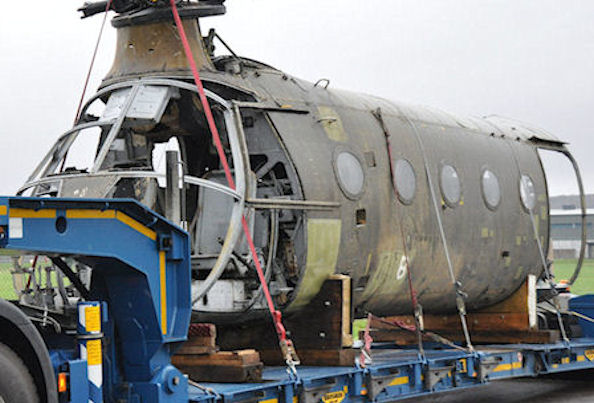
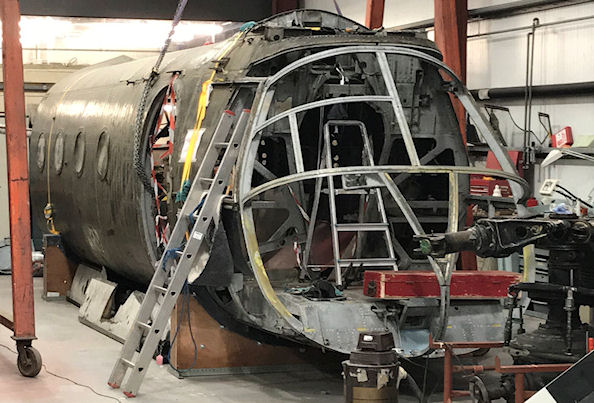
The H-21 is a heavy transport helicopter developed by the Piasecki Aircraft Corporation established in 1948 in the United States.
The H-21 can be considered as the ancestor of today's CH-47 Chinook. It is known for
its nickname the 'Flying Banana' due to its kinked shape. FR41 served with the French Army in Algeria.
More ...
EH101 Heliliner
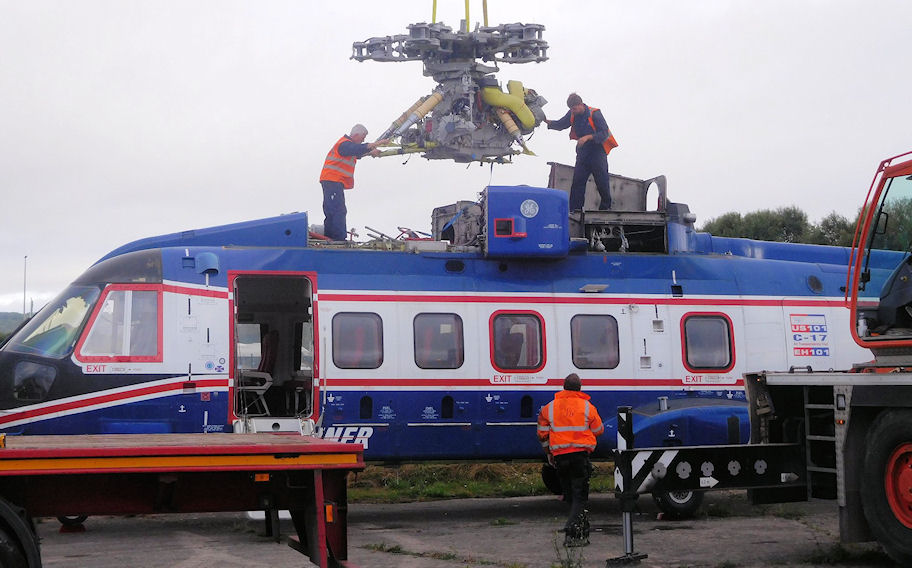
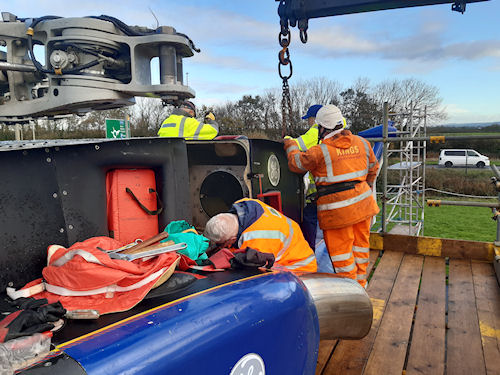
EH101 Heliliner PP8 G-IOIO/ZJ116 arrived at The Helicopter Museum on 23rd August 2022 from Hendon where it had been displayed at the RAF Museum.
It was transported to the Museum by road with the rotorhead and gearbox removed for transport. The first task was to crane lift
and fit them back onto the top of the helicopter. A few weeks later scaffolding was erected and a Museum team of volunteers set about the task of re-installing the airframe components and panels.
More ...
Fairey Ultra-Light
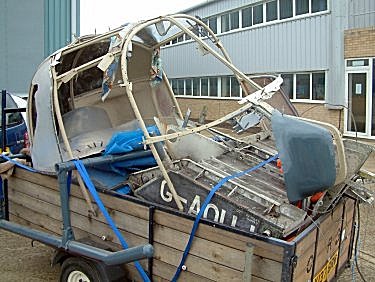
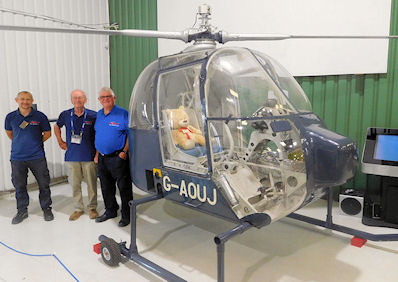
Ultra-Light, G-AOUJ, is one of four prototypes built by Fairey in the 1950s. Acquired by The Museum in 1979
it was transferred to the Cotswold Aircraft Restoration Group. G-AOUJ returned to The Museum in 2010 for
extensive restoration which started in 2011 and was completed in 2021.
More ...
Westland Wessex Series 60
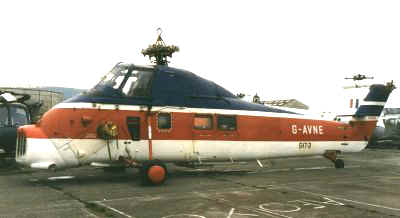
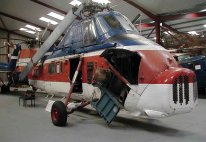
Wessex 60, G-AVNE, arrived at The Museum in 1987 and restoration was
started in 2008. In service with Bristow Helicopters, as a 16-passenger
transport supporting oil and gas rigs in many locations, from delivery
in 1967 until final withdrawal from service in 1981. Restoration was completed in early 2019.
More ..
Westland Wessex HAS.3
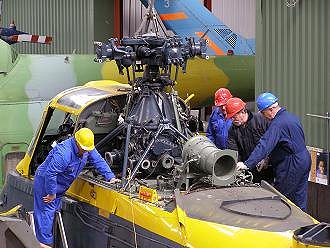
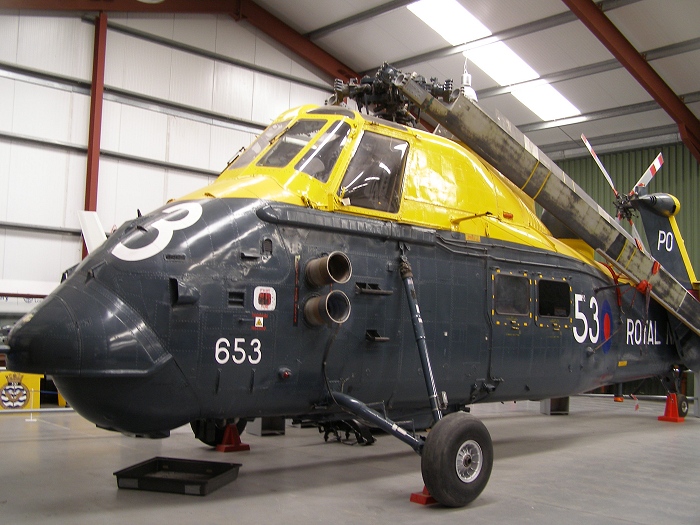
Wessex HAS.3, XM328, went on public display in June 2006
but was moved into the newly-built engineering hangar in June 2007, for
extensive restoration work. Built as a Mk.1 in 1959 but upgraded
to HAS.3, it carried search radar in a distinctive dorsal
dome. Work was completed in early 2016.
More ...
Westland Lynx HAS.2
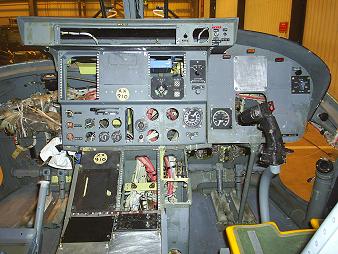
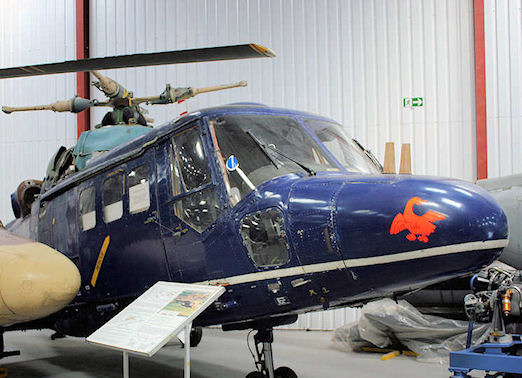
Westland Lynx HAS.2, XX910 one of the pre-production prototypes of the Lynx HAS.2, ASW helicopter.
In 1976 it was the first Lynx to perform a loop. Restoration
was started at the museum in and in 2011 it was transferred to RNAS Yeovilton for further
restoration, repainting and display at the 2011 Air Day before returning to the museum.
More ...
Whirlwind HAR Mk10, XD163
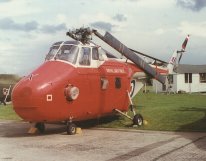
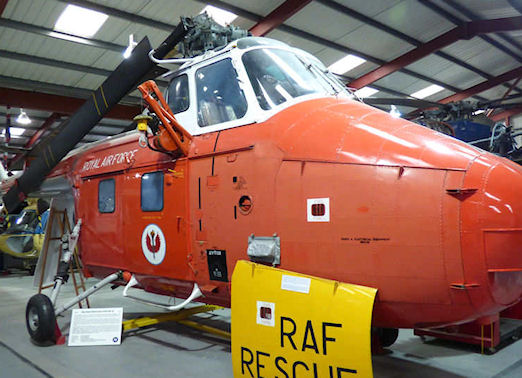
Whirlwind, XD163, arrived at The Museum in 1991 and spent several years in the open air. Following a structural
survey it was decided that some comprehensive restoration was necessary before it could be returned to static
display. Work was started in July 2003 and completed in March 2008.
More ...
Bristol Type 192 Belvedere HC1 (nose Section), XG462
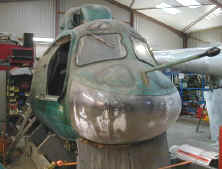
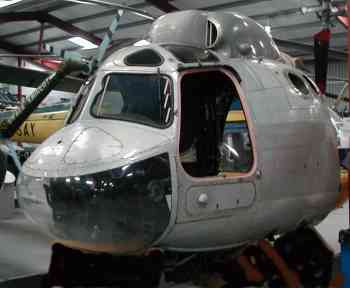
The nose section of Belvedere XG462 was retained by the RAF, following a
fire and forced landing in 1963. It was acquired by The Museum in 1989
with restoration starting in 2002. This was 95% completed in 2005 and
the nose was put on public display. A Gazelle engine was reconditioned
and is displayed to the rear of the nose.
More ...
Westland WS.51A Widgeon
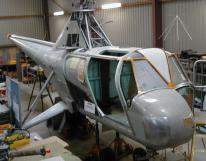
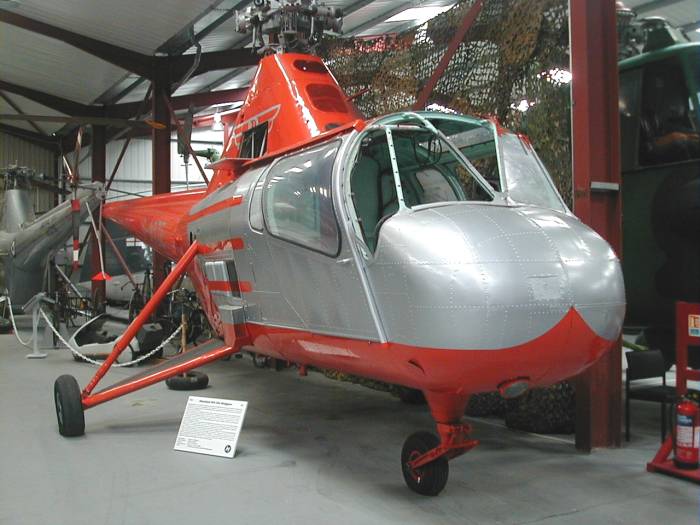
Bristow Helicopters' Widgeon G-AOZE / 5N-ABW served in the Middle East and Nigeria before being acquired by
The Museum in 1986. Restoration started in 1994 and continued, with some interruptions, until 2003 when it
was re-painted in Bristow 1958 livery, for static display at the 2003 Fairford Royal International Air Tattoo.
More ...
Kamov Ka-26 D-HOAY/ DDR-SPY/ DM-SPY
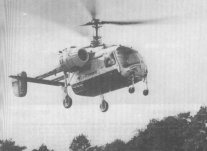
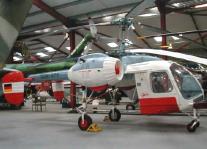
The Ka-26, D-HOAY arrived at The Museum in 1997. Restoration started in 2000 and the machine was
'rolled out' in 2002. The Ka-26 was one of the most successful commercial helicopters produced in
the USSR. Its inter-changeable load pods allowed use for freight or for passengers.
More ...
Westland Wasp HAS.1
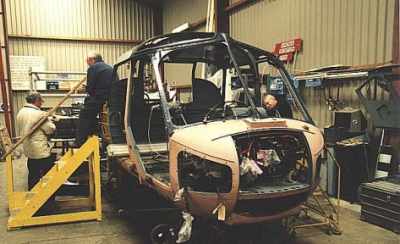
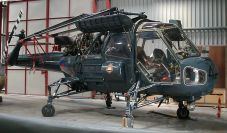
Wasp XT443 served with No. 829 Squadron, on several Royal Navy frigates, as an anti-submarine
and anti-surface vessel helicopter. Acquired by The Museum in 1995, restoration was completed in 2001.
More ...
Bell 47H-1
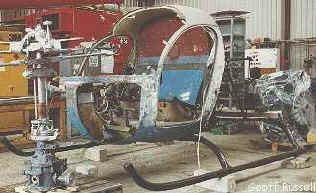
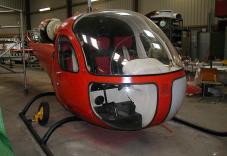
Bought by Sabena, in 1956, OO-SHW accompanied a Belgian Antarctic Expedition in 1957-59. After
five subsequent owners it was damaged in a crash and then acquired by the Museum in 1984.
Following restoration it went on static display in 2001.
More ...
Bristol Belvedere XG452
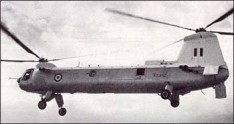
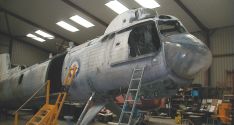
Belvedere XG452 was brought into the Restoration Hangar in 2001. Since then all
the old paint has been removed and many items have been taken apart,
refurbished and re-assembled. More remains to be done.
More ...